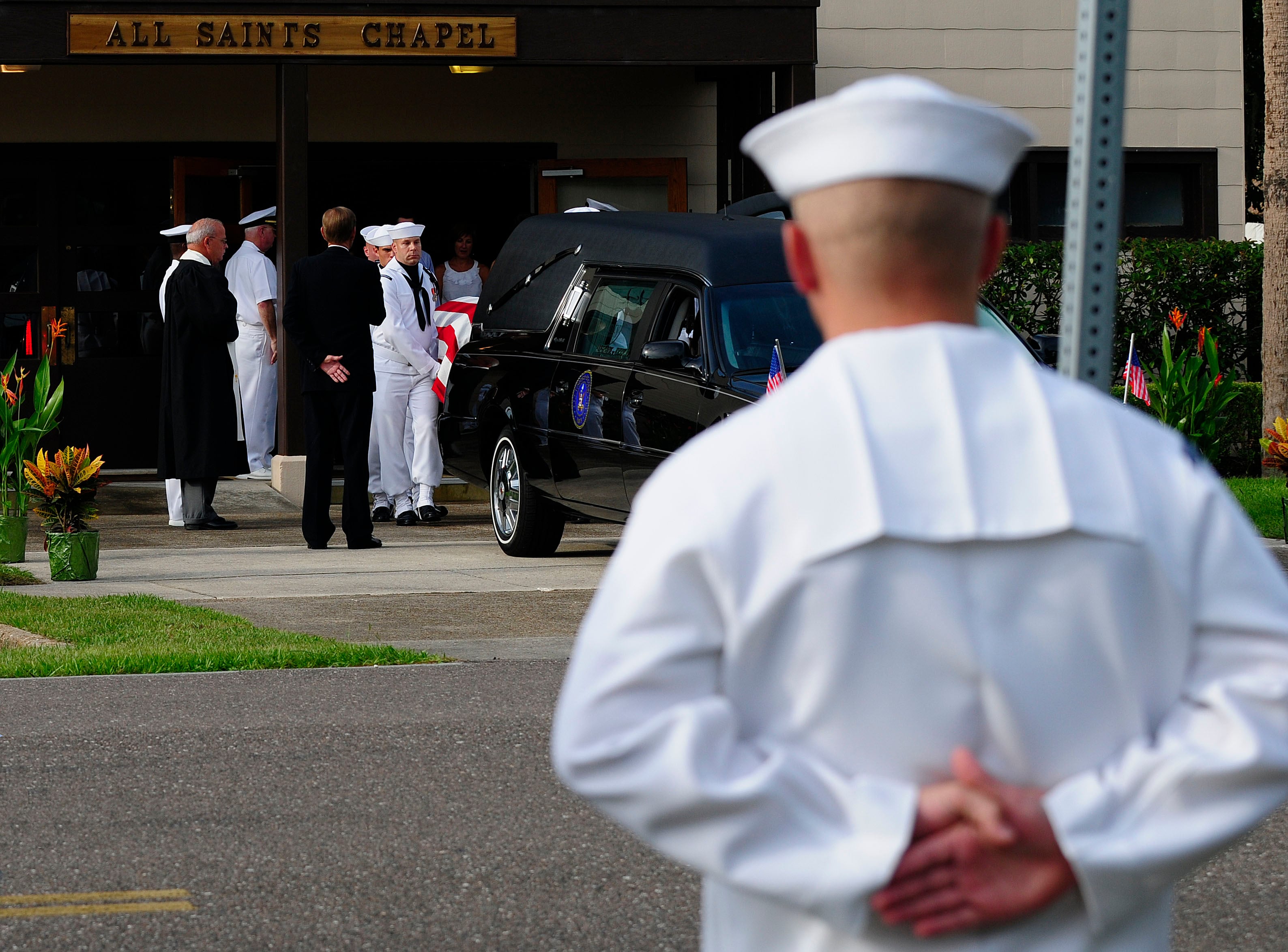Amy Dozier lost her husband, Army Sgt. First 1st Class Jonathan, to an improvised explosive device in Iraq in 2008.
Her 14-year-old daughter, Emma, felt like she lost her father all over again just this year.
“She has always had a connection with him, because we have always shared his stories,” Dozier said. “But my daughter is also in this stage of her life where she is navigating what is ahead and what her identity is. She has begun to ask questions, and for the first time expressed anger about him not being here.”
And mom and daughter have had to navigate those questions in isolation, quarantined in their North Carolina home because of the ongoing coronavirus pandemic.
RELATED

That changes this week. Emma and Amy — along with about 1,000 other survivors of fallen troops and veterans — are gathering in Virginia over the Memorial Day weekend for The Tragedy Assistance Program for Survivors annual military survivor seminar.
In past years, the event has been an annual get together for some bonding and camaraderie around Memorial Day, a holiday of particular weight for the families of those left behind.
But this year’s get-together, being held under loosened restrictions as the pandemic wanes, represents the first time in more than a year that hundreds of families who rely on the group’s support are getting to see each other face-to-face.
“We’ve had some smaller events, socially distanced and with layers of protocols in place, and you can still see the tears when we get together,” said Tamra Sipes, director of event operations for TAPS and surviving spouse of Petty Officer Robert Erwin Sipes.
“Just to be able to have family and peers back, that has been one of the biggest, wonderful things we’ve been able to do.”
Like other organizations across the country, TAPS officials scrambled last year at the start of the pandemic to shift more of their support services and community connections online. Many families said those offerings have proven invaluable as the stress of the pandemic has led them to relive some of the grief from their past.
“I was logging on almost daily to TAPS calls in some weeks,” said Maggie Bainbridge, whose husband, Maj. Bill Bainbridge, died from cancer in 2015.
“I got involved in some groups that I never would have met before. I ended up in one with families who lost loved ones to suicide, and I’ve been inspired by them. I even started taking an art class. I’ve really been blessed to have that.”
Bainbridge’s children — 18-year-old Matthew and 14-year-old Elizabeth — have also been heavily involved in TAPS programs in the past too. Dozier said that her daughter has been eagerly anticipating this weekend’s event because it marks her shift in the group’s Good Grief Camp from a participant to a leader, helping younger kids work through their challenges.
“Emma has grown up with these kids,” Dozier said. “This is such a huge part of her life. She was young when [Jonathan] died, but TAPS taught me how to share his story with her, and how to help her learn about where she came from.”
TAPS officials are still planning to have an extensive online component for the weekend’s activities and workshops, acknowledging that the pandemic isn’t fully finished yet.
The typical attendance for the annual gathering is above 2,000, but social distancing guidelines mandate the smaller total this year. Bainbridge said her family will be participating from afar because not everyone in her family has finished their coronavirus vaccine protocols yet, but she’s looking forward to future events.
RELATED

And TAPS officials said that while masks won’t be mandated for participants (since federal health guidelines have dropped them in many cases for vaccinated individuals), social distancing guidelines will still be in place.
“We all hug,” Sipes said. “It’s really hard not to be able to do that. But for now, we still have those protocols in place.”
Dozier, who hasn’t traveled much out of her neighborhood over the last year because of the pandemic, said she’ll do her best to contain that impulse.
“I certainly wouldn’t mind some hugs,” she said. “But as long as I’m in the same place with these people, I don’t care. We’ll take whatever we can get.”
Leo covers Congress, Veterans Affairs and the White House for Military Times. He has covered Washington, D.C. since 2004, focusing on military personnel and veterans policies. His work has earned numerous honors, including a 2009 Polk award, a 2010 National Headliner Award, the IAVA Leadership in Journalism award and the VFW News Media award.





